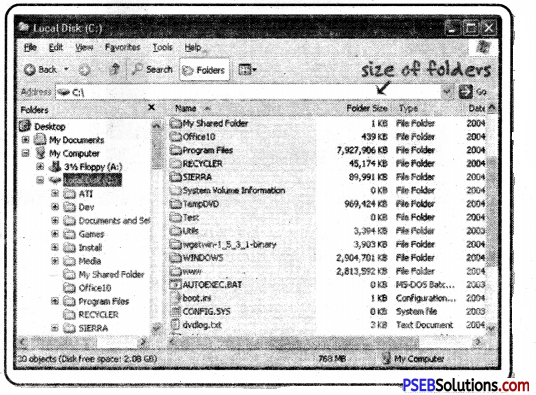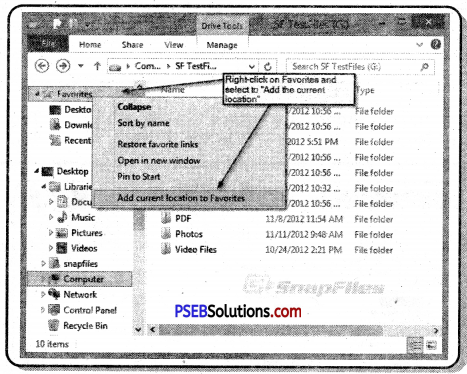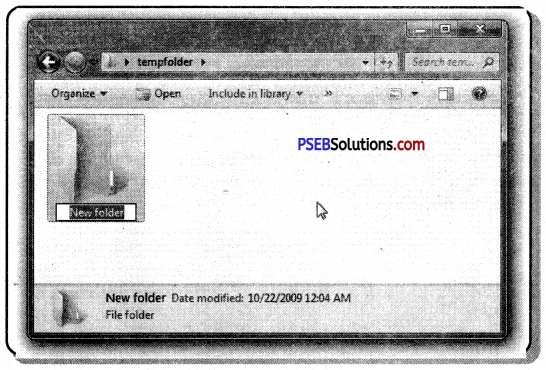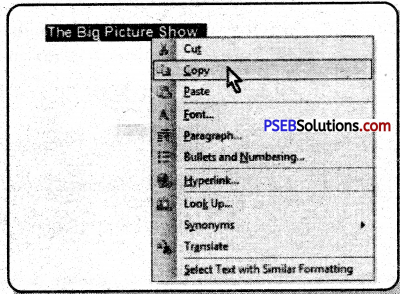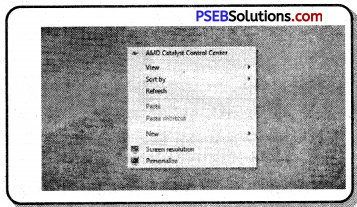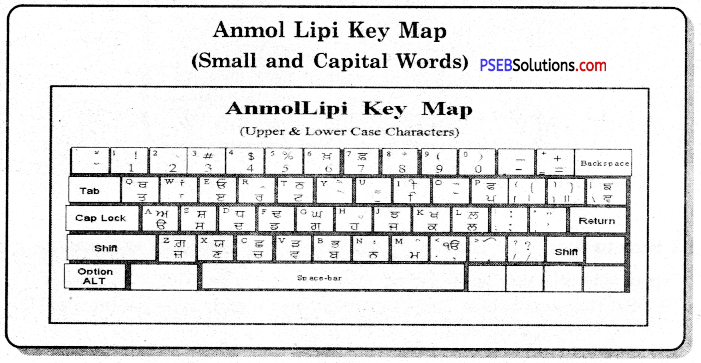This PSEB 10th Class Science Notes Chapter 9 Heredity and Evolution will help you in revision during exams.
PSEB 10th Class Science Notes Chapter 9 Heredity and Evolution
→ Heredity: It is the transmission of genetic characters from parents to the offspring i.e., from one generation to the next.
→ Variation: The differences among the individuals of a species and also in the offsprings of the same parents are referred as a variation.
→ Every organism produce offsprings either through asexual or sexual reproduction. The individuals produced through these reproductive processes are similar but subtly different.
→ In asexual reproduction, although all the offsprings resemble each other and also to their single parent, yet very minor differences (variations) arise in them.
![]()
→ For example, if we observe a field of sugarcane we find very few variations among the individual plants.
→ The reproductive processes give rise to new individuals that are similar, but subtly different.
→ The number of successful variations is maximized by the process of sexual reproduction.
→ Inheritance from the previous generation provides both a common basic body design and subtle changes in it, for the next generation.
→ The second generation will have differences that they inherit from the first generation, as well as newly created differences.
→ Some amount of variation is produced even during asexual reproduction.
→ The selection of variants by environmental factors forms the basis for evolutionary processes.
→ A child bears all the basic features of a human being.
→ Both the father and the mother contribute practically equal amounts of genetic material to the child.
→ Mendel was the first one to keep count of individuals exhibiting a particular trait in each generation.
→ Mendel used a number of contrasting visible characters of a garden pea. Cellular DNA is the information source for making proteins in the cell.
![]()
→ A section of DNA that provides information for one protein is called the gene for that protein.
→ Plant height can also depend on the amount of a particular plant hormone. Genes control characteristics or traits.
→ Each cell will have two copies of each chromosome, one each from the male and female parents.
→ Every germ cell will take one chromosome from each pair and these may be of either maternal or paternal origin.
→ In some animals, the temperature at which fertilized eggs are kept determines whether the animals developing in the eggs will be male or female.
→ In other animals, such as snails, individuals can change sex, indicating that sex is not genetically determined.
→ Human has 23 pairs of chromosomes.
→ Women are XX, while men are XY.
→ The frequency of inherited traits changes over generations.
→ The germ cells of sexually reproducing populations are made in specialized reproductive tissue.
![]()
→ Change in non-reproductive tissues cannot be passed on to the DNA of the germ cells..
→ An individual cannot pass on to its progeny the experiences of its lifetime.
→ Charles Darwin formulated in his hypothesis that evolution took place due to natural selection.
→ We often associate Darwin solely with the theory of evolution.
→ J.B.S. Haldane, a British scientist (who became a citizen of India later), suggested in 1929 that life must have developed from the simple inorganic molecules which were present on earth soon after it was formed.
→ Some basic characteristics will be shared by most organisms.
→ The cell is the basic unit of life in all organisms.
→ Bacterial cells do not have nuclei while the cells of most other organisms do.
→ Among multicellular organisms, whether they can undertake photosynthesis or not, is an important level of classification.
→ The skeleton is inside the body or around the body is another fundamental design difference.
→ The more characteristics two species will have in common, the more closely they are related.
![]()
→ The more closely they are related, the more recently they will have had a common ancestor.
→ Non-living material must have given rise to life.
→ The characteristics in different organisms would be similar because they are inherited from a common ancestor.
→ Mammals have four limbs, as do birds, reptiles, and amphibians.
→ The wings of birds and bats are more closely related to each other.
→ The preserved traces of living organisms are called fossils.
→ If we dig into the earth and start finding fossils, it is reasonable to suppose that the fossils we find closer to the surface are more recent than the fossils we find in deeper layers.
→ The dating of fossils is done by detecting the ratios of different isotopes of the same element in the fossil material.
→ The complex organs 4vill be created bit-by-bit over generations.
→ Like the wing, the eye seems to be a very popular adaptation.
![]()
→ The structure of the eye in different organisms is different. It shows that they have separate evolutionary origins.
→ A flatworm named Planaria has very simple ‘eyes’ that are really just eye spots that detect light.
→ A change that is useful for one property to start with, can become useful later for quite a different function.
→ Feathers, for example, can start out as providing insulation in cold weather but later, they might become useful for flight.
→ The birds are very closely related to reptiles.
→ Humans have started cultivating wild cabbage as a food plant for over more than two thousand years and generated different vegetables from it by selection.
→ Changes in the DNA during cell division would lead to changes in the proteins that are made from new DNA.
→ The organisms which are more distantly related will accumulate a greater number of differences in their DNA.
→ It is not true that human beings have evolved from chimpanzees. The two resultant species have probably evolved in their own separate ways to give rise to the current forms.
→ Evolution is simply the generation of diversity and the shaping of diversity by environmental selection.
→ The tools for tracing evolutionary relationships are excavating, time-dating, and studying fossils, as well as
![]()
→ DNA sequences determination has been used for studying human evolution.
→ All humans are a single species. We all come from Africa.
→ The earliest members of the human species, Homo sapiens, can be traced in Africa.
→ The origin of man, like other species on the earth, is an event of biological evolution.
→ Genetics: The branch of biology which deals with the study of heredity and variation is called genetics.
→ Heredity: The transmission of characters from generation to generation is called heredity.
→ Gene: The basic unit of heredity which transmits the traits into the next generation.
→ Sex chromosome: The pair of chromosomes which decide the sex of male and female.
→ Homologous chromosome: The pair of chromosomes each from mother and father together is called a homologous chromosome.
→ Autosomes: The chromosomes other than sex chromosomes are autosomes.
![]()
→ Evolution: The slow and continuous process of changing organisms from simple to complex form is called evolution. In simple words descend with modification.
→ Homologous organs: The organs have the same origin and basic structure but are adapted to perform various functions.
→ Analogous organs: The organs have a different origin and basic structures but perform the same function.
→ Transgenic organism: The organism produced by the introduction of foreign DNA or genes.
→ Fossils: The remains of dead animals in earth strata are called fossils.
→ Haploid: The single set of chromosomes obtained from one parent.
→ Nucleotide: A molecule made up of nitrogen base, sugar, and phosphate.
→ Chromatid: When the chromosomes divide into two each part is called a chromatid.
→ Vestigial organs: Organs in our body having no functional importance are called vestigial organs.
→ Genetic drift: The effect on the genetic continuation in a population due to the death of organisms or immigration is called genetic drift.
→ Variations are differences between young one of the same parent: They differ from their parents.
→ Variations arise due to inaccuracies in DNA replication in asexually reproducing organisms.
→ Offsprings: Young ones produced as reproduction are ailed offsprings.
![]()
→ Genotype: The internal genetic constitution of an organism is termed genotype. The environment has no effect on it.
→ Phenotype: It refers to externally visible characters of an organism. It is the net result of interactions between genotype and environment. Individuals of the same genotype breed alike are termed phenotype.
→ Recessive traits: An allele (gene) that is not expressed phenotypically when present in heterozygous conditions.
→ Speciation: The origin of species is termed speciation.
→ Acquired characters: The characters acquired during a lifetime are ailed acquired characters.
![]()
→ Life: Life is the power that an organism possesses to maintain and reproduce itself.
→ Natural selection: According to Darwin the individual with special traits survive and multiply while others perish is called natural selection.








